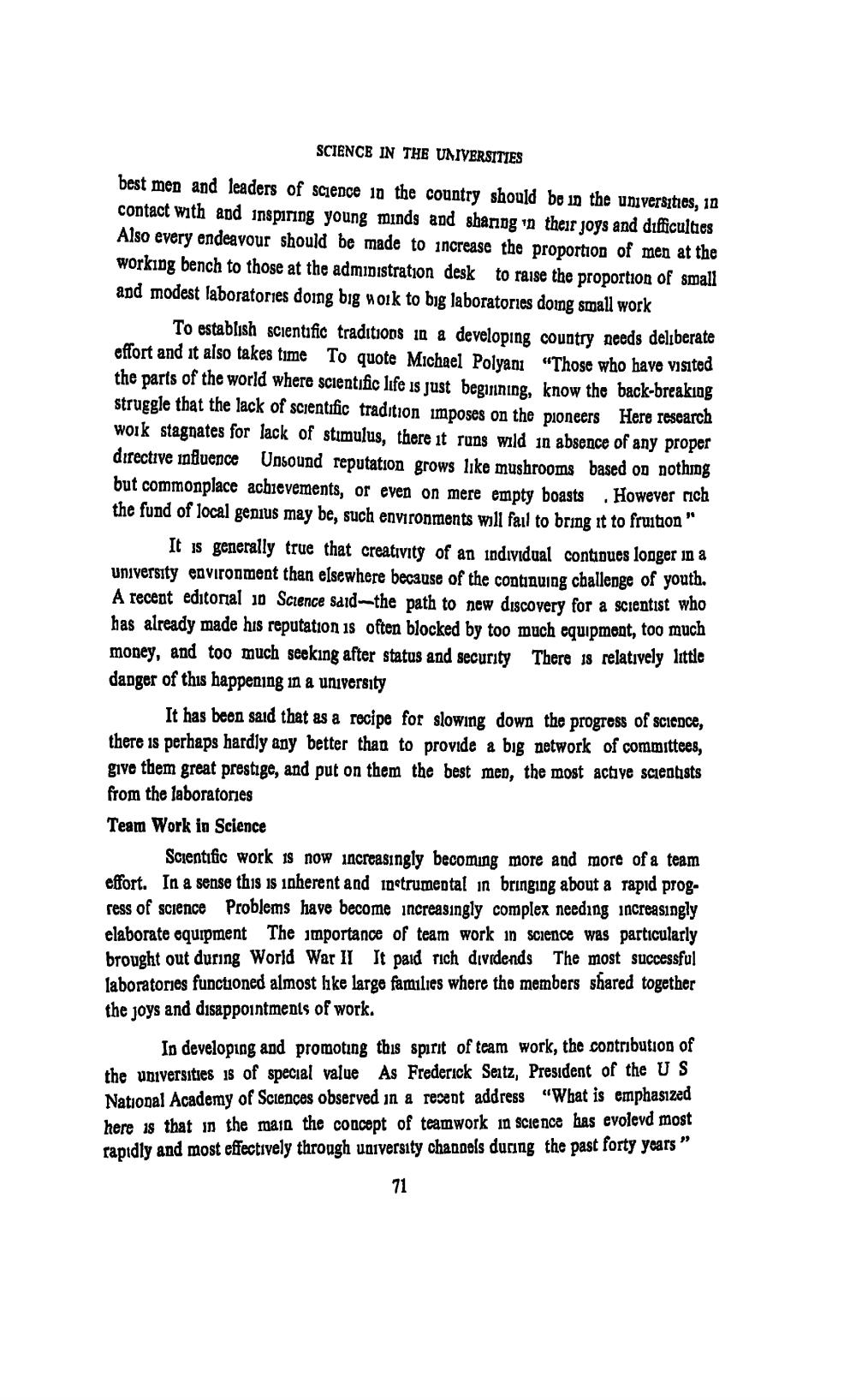________________
SCIENCE IN THE UNIVERSITIES
best men and leaders of science in the country should be in the universities, 10 contact with and inspiring young minds and sharing in their joys and difficulties Also every endeavour should be made to increase the proportion of men at the working bench to those at the administration desk to raise the proportion of small and modest laboratories doing big work to big laboratories doing small work
To establish scientific traditions in a developing country needs deliberate effort and it also takes time To quote Michael Polyani "Those who have visited the parts of the world where scientific life is just beginning, know the back-breaking struggle that the lack of scientific tradition imposes on the pioneers Here research work stagnates for lack of stimulus, there it runs wild in absence of any proper directive influence Unsound reputation grows like mushrooms based on nothing but commonplace achievements, or even on mere empty boasts . However rica the fund of local genius may be, such environments will fail to bring it to fruition"
It is generally true that creativity of an individual continues longer in a university environment than elsewhere because of the continuing challenge of youth. A recent editorial in Science said the path to new discovery for a scientist who has already made his reputation is often blocked by too much equipment, too much money, and too much seeking after status and security There 18 relatively little danger of this happening in a university
It has been said that as a recipe for slowing down the progress of science, there is perhaps hardly any better than to provide a big network of committees, give them great prestige, and put on them the best men, the most active scientists from the laboratories Team Work in Science
Scientific work is now increasingly becoming more and more of a team effort. In a sense this is inherent and instrumental in bringing about a rapid prog. ress of science Problems have become increasingly complex needing increasingly elaborate equipment The importance of team work in science was particularly brought out during World War II It paid rich dividends The most successful laboratories functioned almost like large families where the members shared together the joys and disappointments of work.
In developing and promoting this spirit of team work, the contribution of the universities is of special value As Frederick Sertz, President of the US National Academy of Sciences observed in a recent address "What is emphasized here is that in the main the concept of teamwork in science has evolevd most rapidly and most effectively through university channels during the past forty years ”




